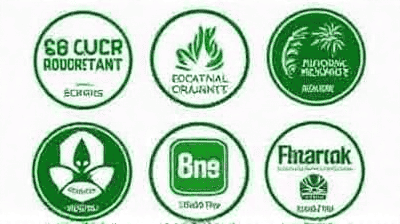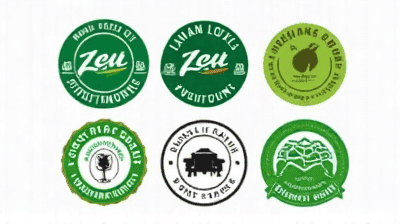
As awareness of environmental issues continues to rise, travelers increasingly seek out sustainable options when planning their adventures. Eco-certificates and sustainability labels have emerged as key indicators for consumers looking to make environmentally responsible choices in the travel industry. However, with a plethora of certifications available, travelers often find it challenging to navigate this landscape and determine which labels genuinely reflect sustainable practices.
Eco certificates are certifications or labels granted to businesses within the travel industry, including hotels, tour operators, airlines, and destinations, that adhere to defined sustainability criteria. These criteria usually focus on environmental protection, social responsibility, and economic viability. Such certifications serve two main purposes:
Guidance for Consumers: Eco certificates provide travelers with a way to identify businesses that commit to sustainable practices, allowing them to make eco-friendly choices.
Recognition for Businesses: Certifications offer businesses a way to demonstrate their commitment to sustainability, often leading to increased customer loyalty and market differentiation.
In recent years, the demand for sustainable travel options has surged. The United Nations World Tourism Organization (UNWTO) has called for more sustainable practices within the tourism sector to mitigate climate change, preserve ecosystems, and promote local cultures. As consumers become more conscious of their travel choices, certifications have proliferated, leading to a convoluted marketplace. To make sense of this complexity, it is essential to evaluate the credibility and impact of different eco-certificates available in travel.

One of the significant threats in the sustainable travel industry is greenwashing—when businesses falsely claim to be environmentally friendly without implementing meaningful practices. This makes it challenging for consumers to discern which certifications are legitimate and which are merely marketing strategies.
Establishing Trust: Credible eco-certificates help establish trust between consumers and businesses by providing transparency and accountability. When travelers see a certification, they can have confidence that the business is genuinely committed to sustainability.
Encouraging Genuine Change: Certifications motivate businesses to adopt sustainable practices, as they must meet specific requirements to achieve and maintain their certifications.
Sustainability labels encourage travel businesses to assess and improve their operations continually. By adhering to certification criteria, organizations can reduce their environmental impact, support local communities, and enhance the overall travel experience.
Environmental Impact Reduction: Certifications often require businesses to implement measures to decrease energy use, reduce waste, conserve water, and protect biodiversity.
Social Responsibility: Many eco-certificates include criteria related to fair labor practices, community engagement, and cultural preservation, ensuring that local communities benefit from tourism.
Given the myriad of certifications available, here are some of the most credible eco-certificates in the travel sector that travelers can trust:
Overview: Green Globe is an international certification program specifically designed for the tourism industry. It focuses on sustainable practices across various sectors, including accommodation, tour operators, and travel agencies.
Criteria: Green Globe evaluates businesses based on environmental management, social impact, cultural preservation, and economic viability. Companies must undergo a rigorous assessment and maintain continuous improvement to retain their certification.
Benefits: Certified businesses receive access to marketing tools and can display the Green Globe logo, increasing visibility among eco-conscious travelers.
Overview: EarthCheck is a scientific benchmarking certification that focuses on sustainability in the tourism industry. It offers tailored assessment tools for various sectors, including hotels, attractions, and transport providers.
Criteria: EarthCheck evaluates businesses based on environmental performance, community engagement, and sustainable management practices. Certification levels range from EarthCheck Ready to EarthCheck Certified and Advanced.
Benefits: EarthCheck provides detailed reports on environmental performance, helping businesses identify areas for improvement while providing travelers with assurance of their commitment to sustainability.
Overview: Travelife is an international sustainability certification program specifically aimed at tour operators and travel agents. It promotes responsible practices in tourism.
Criteria: Travelife assesses businesses based on their sustainability policies, impact on local communities, environmental management, and health and safety practices. Achieving certification requires compliance with a comprehensive checklist.
Benefits: Certified travel companies are recognized for their commitment to responsible tourism, allowing them to market their services to eco-conscious travelers.
Overview: The Rainforest Alliance focuses on sustainable tourism practices that protect biodiversity and support local communities. It certifies various tourism businesses, including lodges and tour operators.
Criteria: This certification involves strict criteria related to forest conservation, wildlife protection, community engagement, and sustainable resource management.
Benefits: Rainforest Alliance certification promotes responsible tourism, attracting travelers interested in supporting biodiversity and community-focused initiatives.
Overview: The Nordic Swan Ecolabel is a widely recognized certification in Northern Europe, focusing on sustainability across various sectors, including tourism.
Criteria: The certification criteria encompass environmental management, waste reduction, energy efficiency, and social responsibility.
Benefits: Businesses bearing the Nordic Swan Ecolabel signal their commitment to sustainable practices, enhancing their appeal to environmentally conscious travelers.
Overview: ISO 14001 is an international standard for environmental management systems. While not specific to tourism, many travel businesses adopt this certification to demonstrate their commitment to sustainable practices.
Criteria: ISO 14001 sets out a framework for organizations to manage their environmental responsibilities effectively. Companies must implement continuous improvement processes to enhance their environmental performance.
Benefits: Holding ISO 14001 certification demonstrates a commitment to sustainability, enhancing a business's reputation and attracting eco-minded customers.
Overview: The Earth Day Network works to promote sustainability initiatives globally, including in the travel sector. They promote various sustainable practices and education programs, supporting responsible travel.
Criteria: While not a formal certification, the Earth Day Network encourages businesses to adopt sustainable practices and shares best practices for the tourism industry.
Benefits: Partnering with the Earth Day Network sends a strong message about a business’s commitment to sustainability, enhancing its credibility among conscious consumers.

When assessing eco-certificates and sustainability labels, travelers should consider a few key factors:
A reputable certification body should provide clear information about its standards, criteria, and assessment processes. Checking for third-party audits and transparency in operations can provide confidence that the certification is credible.
Assess whether the certification has clear, measurable standards specific to the travel industry. Vague claims or lack of specific criteria may indicate a lack of genuine commitment to sustainability.
Quality eco-certificates often require businesses to engage in continuous improvement and periodic reassessment. Look for certifications that emphasize ongoing progress rather than a one-time evaluation.
Traveler awareness and industry recognition of specific certifications can indicate their reliability. Certifications endorsed by reputable organizations or governments may carry more weight in terms of credibility.
Consider certifications that address a wide range of sustainability issues, including environmental, social, and economic factors. A holistic approach to sustainability is essential for genuine positive impacts.
With a clear understanding of eco-certificates, travelers can adopt practical strategies for making eco-friendly choices:
Before booking accommodations or tours, research the eco-certificates held by businesses. Look for verified credentials and consider reaching out to providers to inquire about their sustainability practices.
When planning your trip, prioritize options that hold reputable eco-certificates. Staying in certified hotels, choosing eco-friendly tour operators, and dining at restaurants that promote sustainable practices can significantly reduce your travel footprint.
Engage with local businesses and initiatives that promote sustainability. Seek out locally-owned accommodations, organic restaurants, and community-based tours that support environmental and social well-being.
Consider participating in local conservation efforts while traveling, such as volunteering for clean-up events, wildlife monitoring, or community education initiatives. Contributing to local preservation projects can create a positive impact during your travels.
Stay informed about environmental issues and sustainable travel practices and share your knowledge with fellow travelers. Encouraging sustainable travel behaviors can foster a broader culture of responsibility in the tourism industry.

Travelers play a pivotal role in promoting sustainable practices within the travel industry. By making conscious choices and holding businesses accountable, travelers can drive demand for eco-friendly options and foster positive change.
When booking travel, communicate your preferences for eco-friendly options to businesses and tour operators. By expressing interest in sustainable practices, travelers contribute to a growing demand for responsible tourism.
Leave reviews and feedback on travel platforms, highlighting sustainable practices of businesses you enjoyed. Positive reinforcement for eco-conscious efforts encourages other companies to adopt similar practices.
Support policies and initiatives that promote sustainable tourism at local, national, and global levels. Engaging with organizations and advocacy groups can amplify efforts toward more sustainable travel practices.
Adopt responsible travel behaviors, such as minimizing waste, reducing energy use, and being mindful of cultural sensitivity while visiting new destinations. Your day-to-day choices can contribute to a more sustainable tourism experience.
Eco-certificates and sustainability labels have emerged as invaluable tools for travelers seeking to make environmentally responsible choices. By understanding the significance of credible certifications and their unwavering commitments to sustainable practices, travelers can confidently navigate the landscape of sustainable tourism.
As the industry continues to evolve, travelers' awareness and demand for sustainable practices can foster positive change, promote biodiversity conservation, and support local communities. Through educated choices and advocacy for responsible practices, travelers can contribute significantly to the growth of sustainable tourism, ensuring that future generations can continue to explore the world while preserving its beauty and integrity.
By supporting businesses that hold credible eco-certificates, travelers are not just enriching their own experiences but are playing a pivotal role in creating a more sustainable future for the tourism industry.